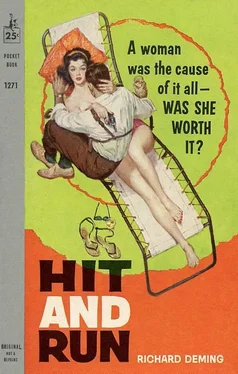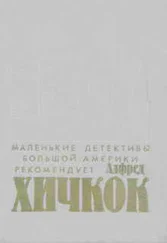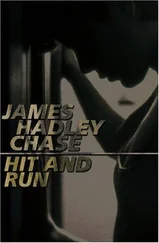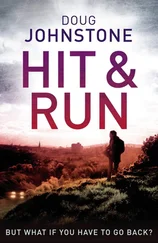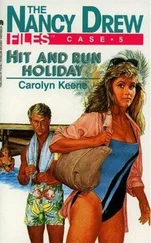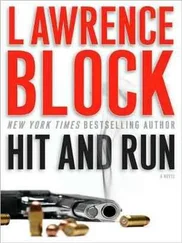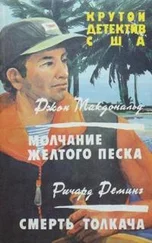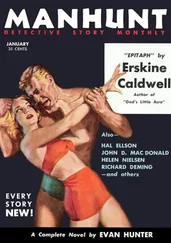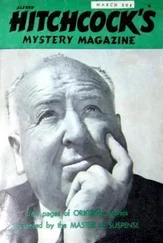“The gauge doesn’t work properly,” she said. “I believe there’s only a little over five gallons in the tank.”
Calhoun slowed to a stop and looked sidewise at her in exasperation. “You might have mentioned that before we started. We could have drained some gas from the other cars.”
“You might have mentioned that we weren’t going to Rochester,” she countered with logic. “You have enough gas to make that.”
In silence he started the car again. After a moment she asked, “What are you going to do? Take a chance on buying some?”
He shook his head and continued driving. Helena said, “Now aren’t you glad I came along?”
“Why?” he asked.
“You wouldn’t have known about the fuel gauge. You’d have run out of gas on the highway somewhere.”
Calhoun made no answer.
He continued maneuvering southwest. Finally, after skirting the downtown section, he drove along lower Pearl Street and parked.
“Isn’t this where you live?” Helena asked, peering out.
“Yeah,” he said. “I’ll only be a minute.”
He left her in the car while he went inside. He returned almost immediately with a red-painted one-gallon gasoline can and a short length of rubber tubing. He tossed them on the back floor, then climbed back under the wheel and started the car.
“That can sounded empty,” Helena said.
“It was,” he said tersely.
Deciding he wasn’t in a conversational mood, she lapsed into silence.
They were now only a block from the Skyway entrance. They made it without incident, and Calhoun breathed a sigh of relief. With traffic from the other direction widely separated from them, there was virtually no chance of anyone spotting their car damage while they were on the bridge. And once off of it, they would be nearly out of town.
But just as they drove off the far end of the bridge, they had a bad break. Up to this point they hadn’t seen a single radio car, but now, only a few blocks from the city limits and relative safety, one suddenly appeared coming toward them. As it cruised by, it blinked on its highway lights, then lowered them again.
With his heart in his mouth, Calhoun wondered if the two patrolmen in the car had noticed the damaged right front. In the rear-view mirror he saw them swing in a U-turn and start back. He had been traveling at twenty-five, but he risked increasing the speed to thirty.
A siren ground out a summons to halt.
For a wild moment Calhoun contemplated pushing the accelerator to the floor and racing it out. Then he realized there wasn’t any safe place to run. Straight ahead Route Five had only one turnoff, and it would spill them right into the most congested part of town. Past the turnoff the road ran like an arrow, without a curve or an intersection, clear to Lackawanna. If they tried that, the police would simply radio Lackawanna and a roadblock would be set up long before the Buick could get there.
Calhoun pulled over to the side of the road.
When the police car pulled up next to them, neither officer got out. The one on the right said, “Haven’t you got any dimmers on that thing, mister?”
At first his words failed to penetrate, because Calhoun was expecting some question about the smashed fender. Then he flicked his eyes at the dashboard and saw the small red light that indicated the highway. lights were on. His left foot felt for the floor switch and pressed it down.
“Sorry,” he said. “I didn’t notice I had the brights on.”
The officer nodded peremptorily, and the radio car swung in another U-turn to resume its course.
With shaking fingers Calhoun lighted a cigarette before starting on.
He maintained a speed of thirty-five, five miles less than the limit, through Lackawanna and down to the circle where Route Five met Seventy-five. He took Seventy-five the few miles to where it crossed Twenty.
Five and Twenty ran parallel clear from Buffalo to Erie, Pennsylvania, occasionally joining each other and becoming one road for short stretches. Calhoun chose Twenty at this point because Five ran along the lake through numerous small towns, while Twenty was relatively unpopulated for the next twenty-five miles. He could have saved considerable time by entering the Thruway at this point and taking it as far as the Pennsylvania border, but this would have entailed stopping at a brightly lighted toll gate on both entering and leaving the Thruway. Calhoun didn’t choose to risk having some sharp-eyed gatekeeper notice the damaged fender and perhaps recall that an alert was out for a green Buick.
He kept to a sedate fifty miles an hour for the next hour, joining Five again just before Irving and staying on it. At Westfield, some sixty miles from Buffalo, he slowed and drove aimlessly up and down several side streets.
“What are you doing now?” Helena asked.
“We have to get gas.”
“We passed a station right in the center of town.”
“I know,” Calhoun said. “But we can’t leave any record of a banged-up Buick stopping anywhere for gas here. The alert won’t reach as far as Cleveland, but it’s sure to have gone this far.”
Finally he found what he wanted: a car parked in a side-street where all the houses were dark. He parked behind it, facing the wrong direction, so that the rear of the Buick backed up against the rear of the other car, and switched off the lights. Getting out of the car, he lifted the gas can and rubber tubing from the rear floor.
“Slide over under the wheel,” he ordered.
She stared at him for a moment, then she obeyed. “What are you going to do?” she asked.
“Steal some gas. And we can’t afford to get caught. If anybody challenges us, be ready to take off fast. If I have time to get in, fine. If I don’t, take off without me. I can beat a gas-stealing rap, but we’re dead if the police get a good look at this car.”
“Where would I go?”
“Straight on to the next town. Ripley, I think it is. Wait for me at the village limits on this side of town, on Route Twenty. If I don’t show within a few hours, check into the first motel you come to the other side of Ripley and wait until I do.”
She said, “You think of everything, don’t you? I’m beginning to think you earn your money, Mr. Calhoun.”
“Why so formal?” he asked. “My name’s Barney.”
In the darkness he could see her looking at him, and could just make out her expressionless face. “All right, Barney,” she said after a moment.
Calhoun glanced up and down the street, then unscrewed the gas cap of the car behind them. He siphoned off a gallon of gas and emptied it into the Buick’s tank. He repeated the process three times.
He was siphoning off a fifth gallon when a large-lensed flashlight suddenly blinked on from the side of the house the two cars were parked in front of. The light wasn’t fifteen feet away.
“Got you this time!” a triumphant voice cracked out. “Hold it right there, or I’ll shoot!”
The long muzzle of a double-barreled shotgun protruded from behind the flashlight.
From the corner of his mouth Calhoun said, “Take off. Fast.” At the same moment he dropped the rubber tubing and elevated his arms.
The Buick’s engine roared and the car spurted away, its lights still out. Apparently in the darkness the man with the shotgun hadn’t realized there was anyone in the car, for the move caught him by surprise. The shotgun muzzle started to swing in the direction of the Buick, but the light remained fixed on Calhoun. The car was out of sight in the darkness before the man could possibly get its license number or, probably, even identify its make.
The muzzle swung back to center on Calhoun.
“Let him go,” the voice from beyond the flashlight said grimly. “The fellers at the State Police barracks can find out from you who he is.”
Читать дальше
